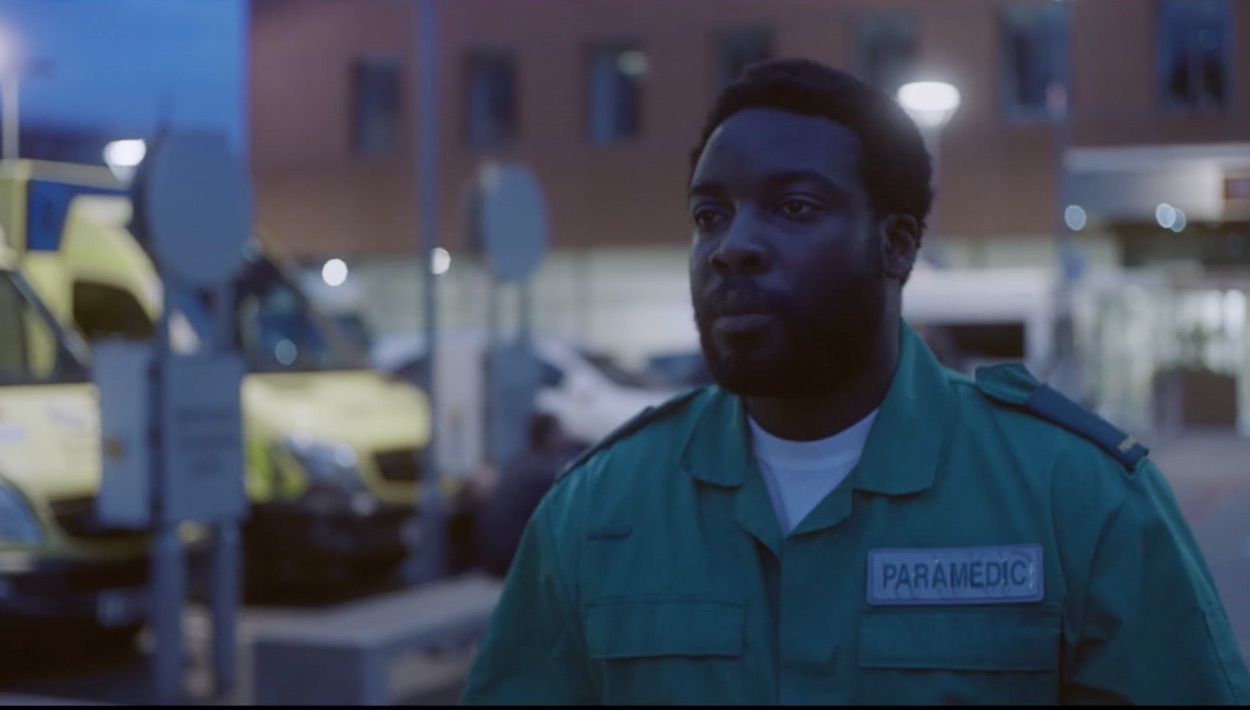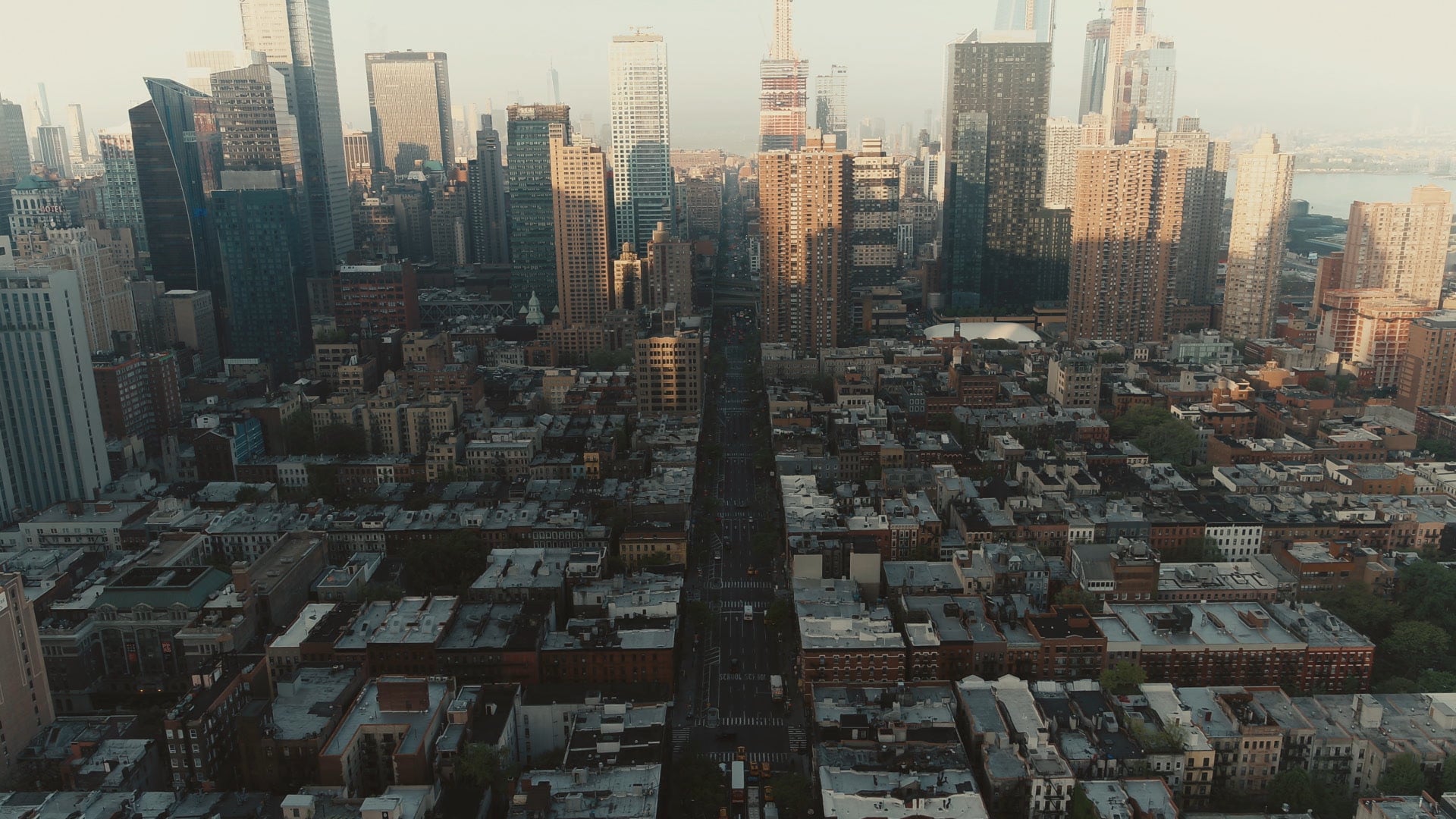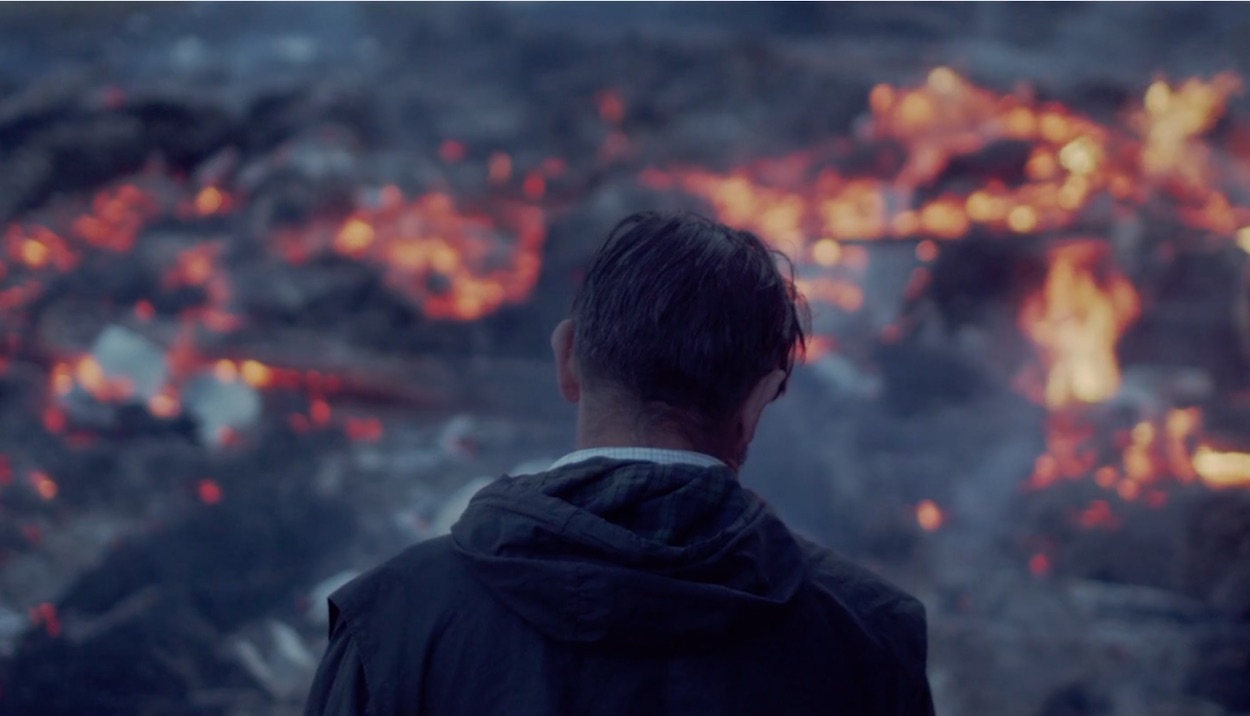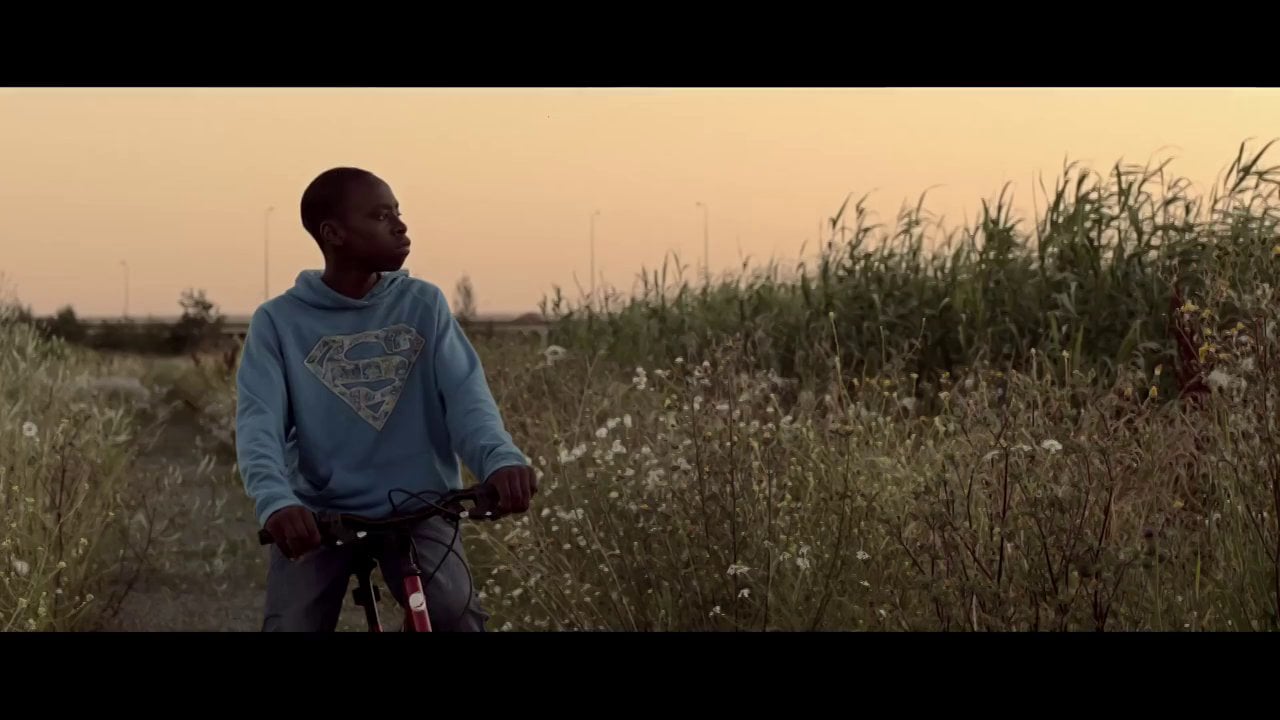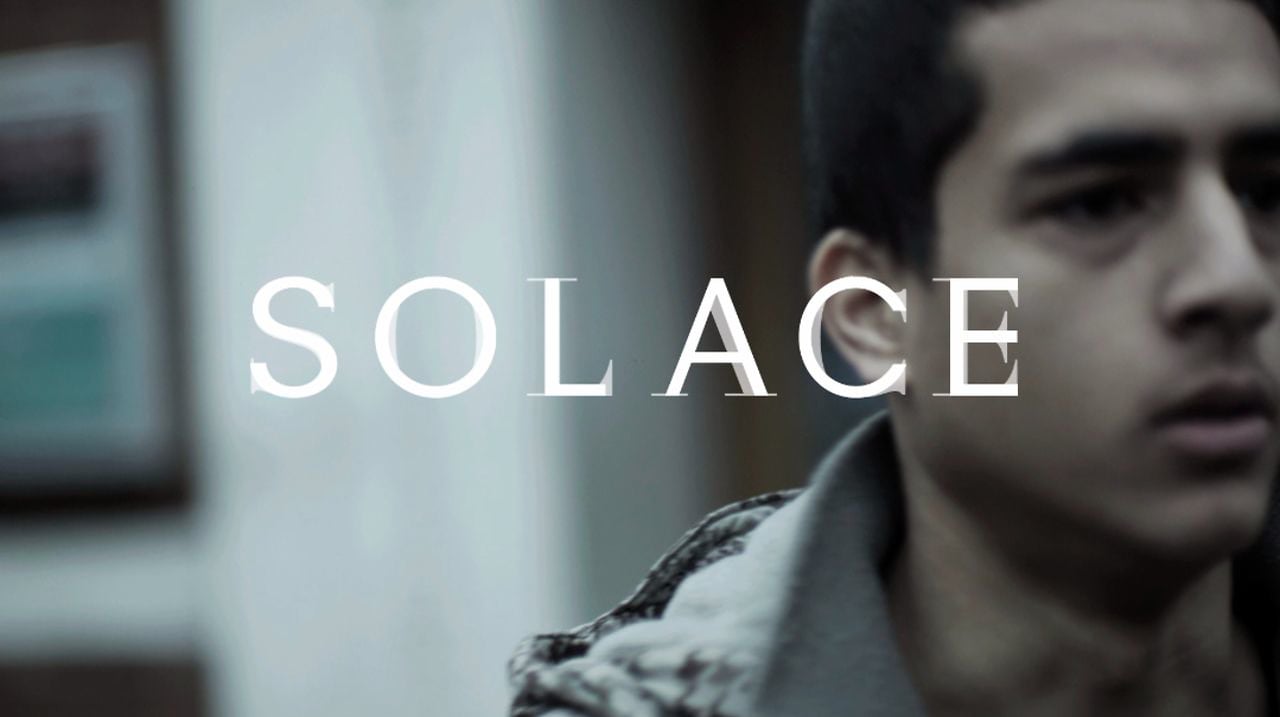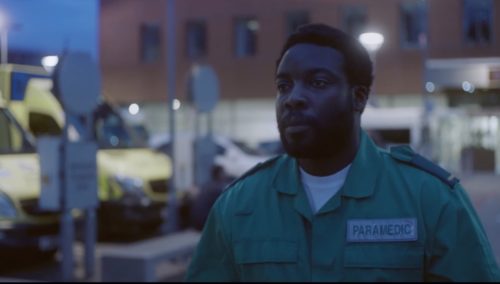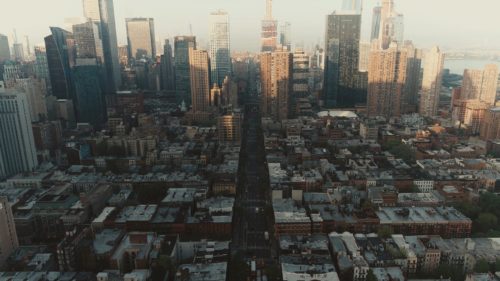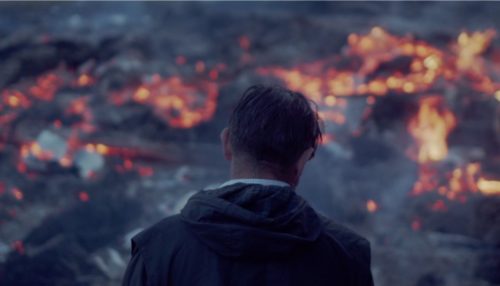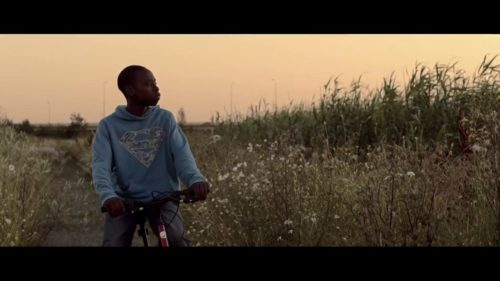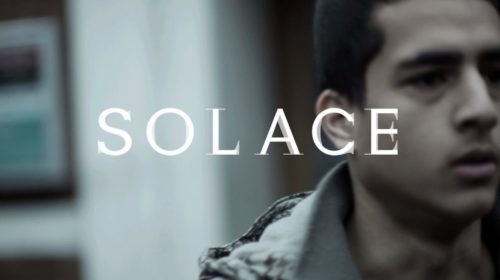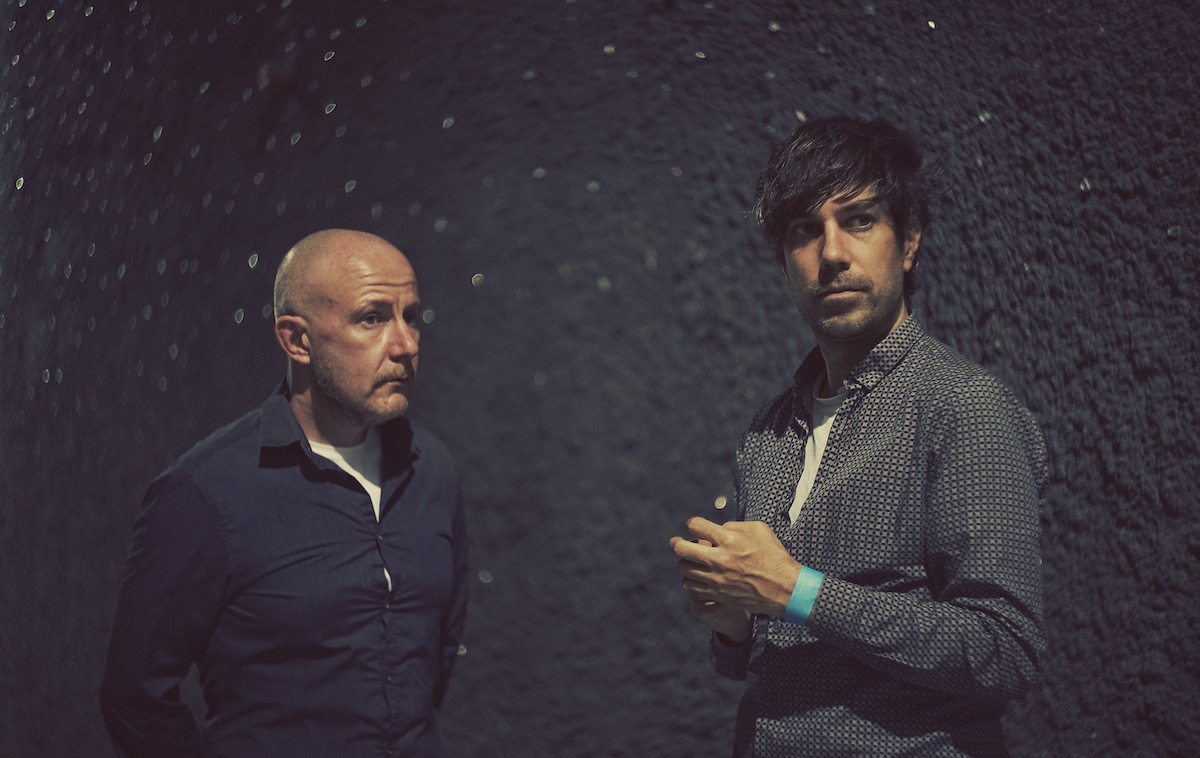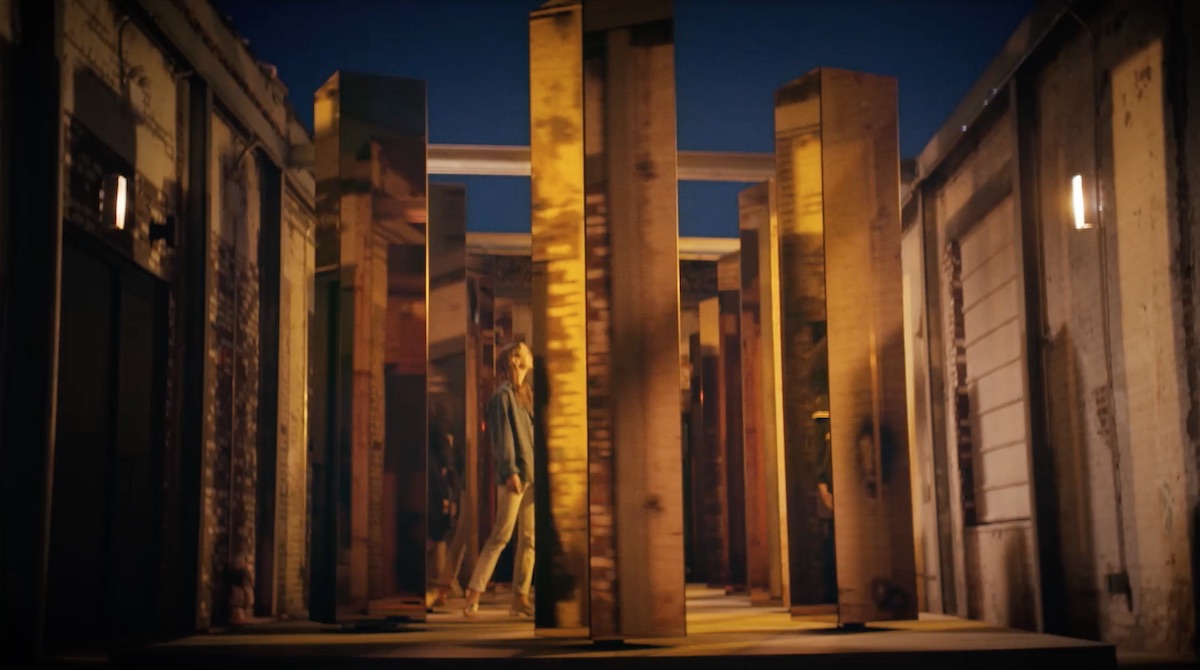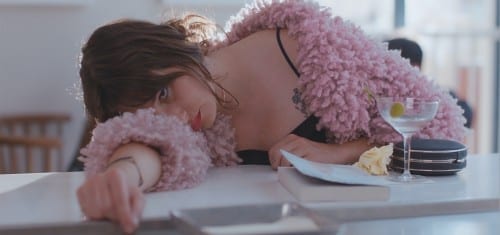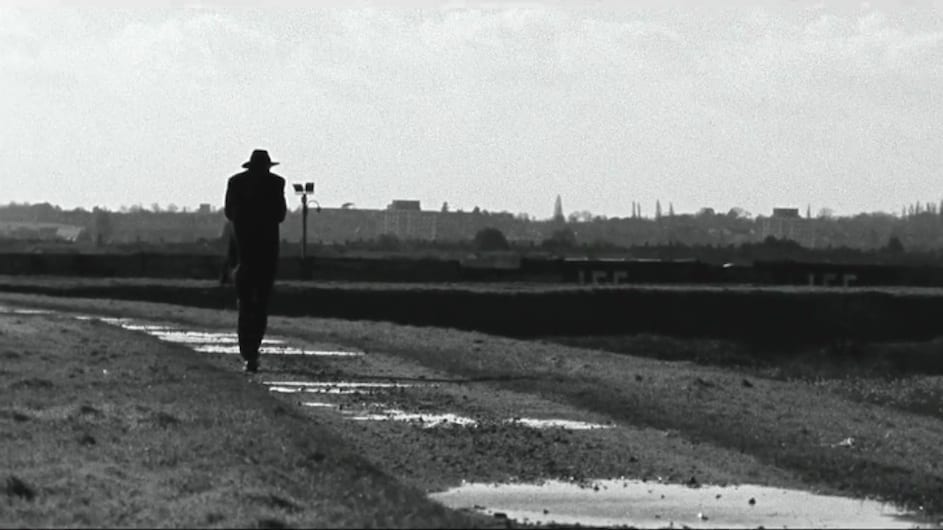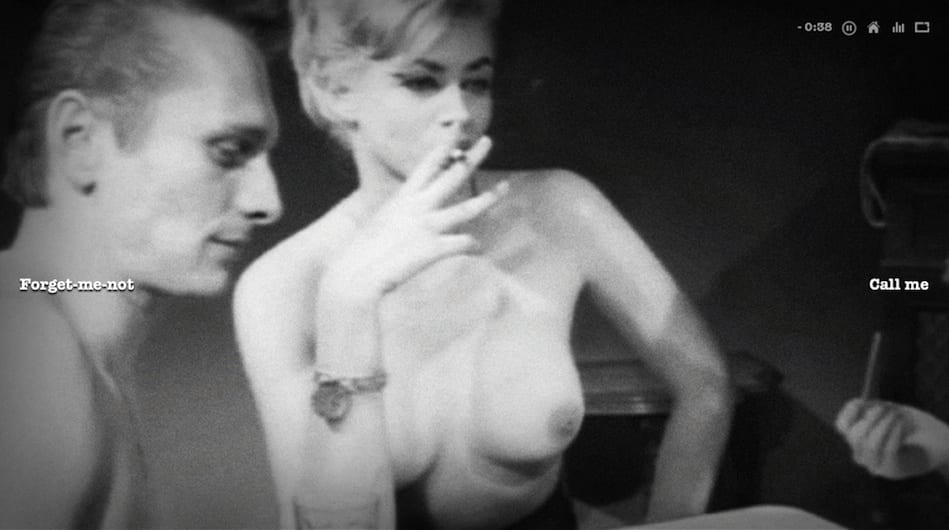Luke & Joseph Photo credit: David Procter
You met at arts college – what were your first impressions of each other, and did you have any inkling at that point that it would be the start of a long and fruitful partnership?
Luke Seomore: [Joseph] was the only one who talked to me at college! Everyone was in a clique and Joseph stood out as really open, but a bit mysterious too. We had no idea we’d still be working together today, at the time we just bonded about artists we loved, and music; he lent me Public Enemy records and I gave him Miles Davis’ Bitches Brew.
Joseph Bull: We had shared tastes and a common ground; we discovered a lot of film, art, literature, music together. To me it was apparent even then that our collaborations would be the foundation of all our future work.
You’ve worked together exclusively since that first meeting. What’s the dynamic of your working relationship and how, practically, do you divide up the process of creative and production?
LS: It has evolved, but it’s really the same as when we started. It’s pretty organic, everything is shared, maybe one of us will have a spark of an idea and then we’ll start to develop it together. Joseph has got a great instinct for locations; he’ll find some nuclear bunker in the depths of Essex. I’m more involved with the soundtrack—when we shot in a Canning Town sauna, where the clientele all looked like extras from Eastern Promises, I found some crickets living inside the wood of the sauna and I created a track out of that. When we’re on set, it’s pretty fluid. It’s mainly about trust – once you have that shared vision, you’re confident to pass the reins between you.
As well as being a filmmaker, Luke, you’re also a musician and have created soundtracks for several pieces of work, including Blood Cells and Solace. How does composition fit in with the filmmaking process – is it something you’re working on throughout, or does it tend to be towards the final stages?
LS: It’s there from the start. Atmosphere is important to us and that’s so closely tied into music, so I write ideas that I’ll share with Joseph. A sense of place will inspire song tones; I’ll record sounds from locations on my phone just so I have a deeper memory of the place.
Spirit of the City
Coming from a documentary background, you’ve mentioned being ‘obsessed’ with characters – tell us about some of your favourites from your body of work.
LS: It’s a healthy obsession! All of them, really, but for me, Adam in Blood Cells is probably the one that personifies a certain person that interests us. He’s someone on the edges of society but as he’s a drifter, an enigmatic charmer, he also floats through many different worlds.
JB: I still think about all the characters years after making the films. The character played by Hayley Squires in Blood Cells was developed closely with her. Our conversations about the character started a couple of years before we shot the film, it was exciting on the shoot to see that play out, you could see the energy and vulnerability that she was bringing to the character. There was a moment in our documentary Isolation, in the front room of Jamie, the youngest ever soldier to be injured in Iraq. A person who wasn’t political or articulate, but in one sentence, at the end of the interview, was able to express the views and reality of many soldiers. The statement was so powerful because it was coming from a character like Jamie.
Be it drama or documentary, a constant theme running through your work is of ‘hidden lives’ on the fringes of society – the homeless ex-serviceman in Isolation, the East End youths in Solace, the lost son in Blood Cells – hinting at politics and social change agendas. Do you see your films in that way?
JB: Our stories and characters are consequences of political decisions or events. That has always driven the films and the characters that navigate the conditions sparked by those events. Hopefully they offer a snapshot or a consequence of an event like the foot and mouth crisis in Blood Cells or the Iraq war in Isolation.
LS: Yes, it’s a good observation, you don’t realise that when you begin, you’re just drawn to certain people, but as you create more films you start to get a sense those fringes are where the really interesting stories hide. I don’t see them as overtly political, but when you explore these lives it becomes political, as they are the people [that] the system or society as a whole has forgotten.
Spirit of the city
PALACE, your latest short, follows a young paramedic home from work, and the cycle of emotions he processes. How much was the idea inspired by frontline workers during the pandemic?
LS: It’s part of a bigger project we’ve been working on since well before the pandemic, partly inspired by my brother’s work in the NHS, but it’s taken on that resonance since. He’s been a nurse for over 10 years and we wanted to capture a perspective that’s not always focused on – the aftermath of an intense shift, and those transitional moments of emotion and solace, the difficulty of expressing those feelings to your family.
It was great that it’s our first film with Unit 9 and our regular cinematographer David Procter was really influential. It was like going back to the start, just us three stalking the darkened streets of night-time London!
JB: It was important to show London at this time… At night, London can feel melancholy, more so now than ever. Our character feeds off that feeling, as he comes down from the night’s shift. We have often shot London at night and spent many hours walking looking for locations to photograph or inspiring stories, but in PALACE we all (with our cinematographer David) really nailed that intangible atmosphere of nocturnal London.
Speaking of Covid-19, and the strangeness of 2020, how has this year been for you, and what learnings from the first lockdown will you be taking into the second?
LS: Take each day as it comes. If you try to imagine the future too much and think about the suffering it gets way too much to comprehend. It’s a balance, you’ve got to engage and realise the situation but keep busy and open to immediate people around you to stay sane. Listening to Brian Eno helps too!
JB: The first lockdown gave me lots of space and time to reflect on the direction of our projects. I was able to concentrate on writing more than ever.
What are you working on at the moment?
LS: We have written a couple of feature scripts, one called Pigs’ Disco that we’re really excited about. There’s a script about Dennis Potter that’s feels like a unique perspective on his life that’s in the early stages, and we are looking at developing PALACE into a broader project, and we’re lining up some new projects with Unit9 too.
I just released an album that I’m pretty proud of, under my ‘Blessed are the Hearts that Bend’ moniker on a Berlin label called Vaagner. It’s out digitally and on cassette so get your Walkmans at the ready…
Interview by Selena Schleh
Directed & Written by Luke & Joseph Director Of Photography David Procter Casting Director Kharmel Cochrane Art Director Mark Couzens Editor Dennis Mabry Grade Steffan Perry Post Producer Chris Anthony 2nd Ac Norbert Varjasi
Executive Producer Adam Dolman
Special Thanks To: Adam Seomore, Joseph Youens, Adam Farley, Pixipixel And Framestore
